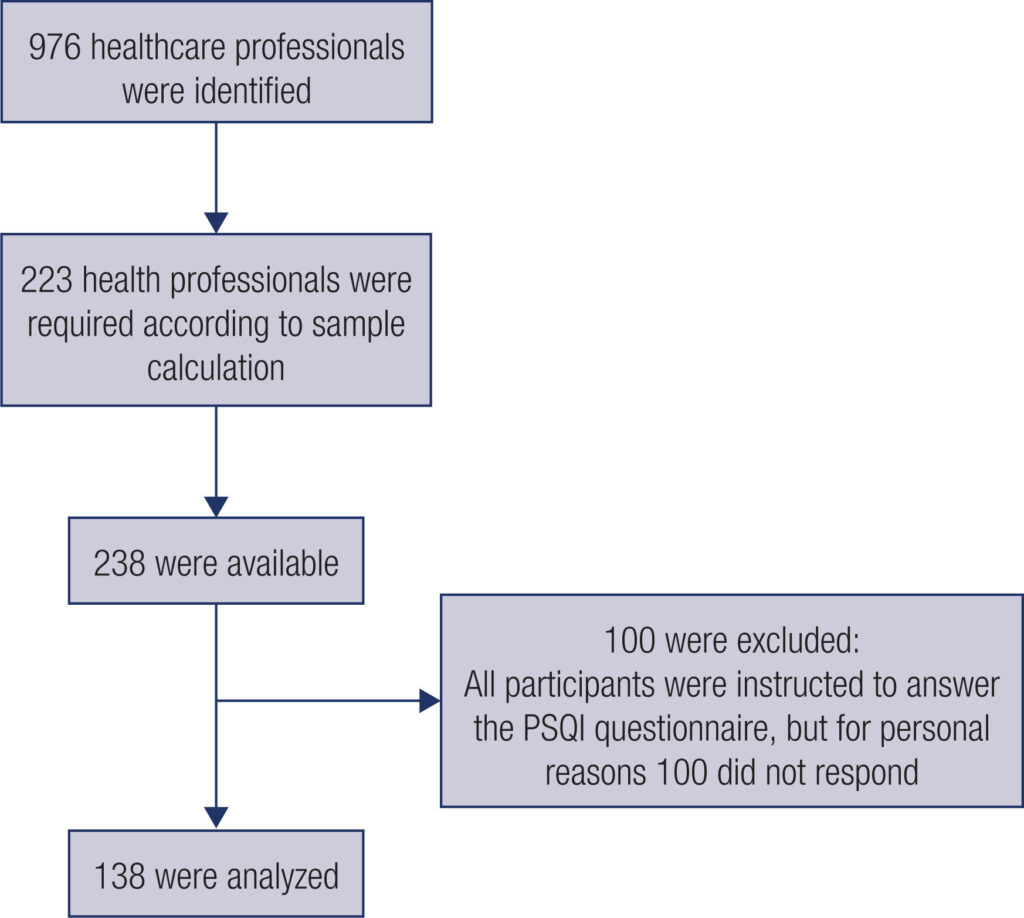Arch. Endocrinol. Metab. 2023;67(1):73-91
Triglyceride-glucose index is associated with poor sleep quality in apparently healthy subjects: A cross-sectional study
DOI: 10.20945/2359-3997000000517
ABSTRACT
Objectives:
We aimed to evaluate the association between the triglyceride glucose index (TyG index) and sleep quality and to establish a cut-off value for the TyG index based on the prevalence of subjects with insulin resistance (IR).
Materials and methods:
This cross-sectional study involved Brazilian health professionals (20-59 years). A total of 138 subjects answered the Pittsburgh Sleep Quality questionnaire to evaluate sleep quality. They were categorized into two groups: good sleep quality (global score ≤ 5 points) and poor sleep quality (global score ≥ 6 points). Also, we classified the subjects as having a high (>8.08 or >4.38) or low TyG index (≤8.08 or ≤4.38).
Results:
The majority of the subjects (70%) with high TyG index values (>8.08 or >4.38) reported poor sleep quality (p ≤ 0.001). Those with poor sleep quality had a 1.44-fold higher prevalence of IR (TyG index >8.08 or >4.38) compared to those with good sleep quality, regardless of sex, total cholesterol, LDL/HDL ratio, insulin, complement C3, CRP, and adiponectin (p ≤ 0.001).
Conclusion:
Our data showed a positive and significant association between the TyG index and poor sleep quality. Thus, these findings support the association between poor sleep quality and IR.
Keywords: cardiometabolic risk; insulin resistance; ROC curve; sleep quality; TyG index

